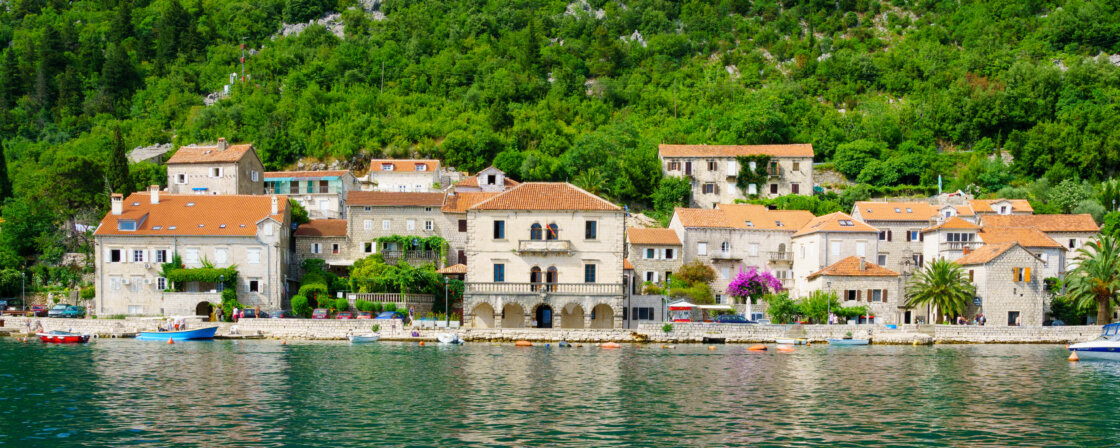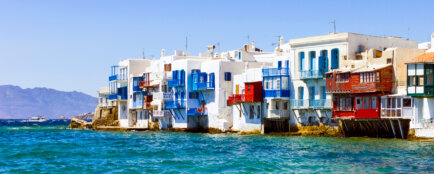Read also the first part of the series on renting a house abroad. In this part we focus on Italy, Greece and Spain. In addition, we also give you some advice on how to actually search for a house rental abroad.
House rental in Croatia
Many Facebook groups aimed at helping foreigners find a place to live in Croatia will come in handy. In addition, it’s also a good idea to use local portals bringing together property listings – the most popular choices include Njuškalo, Crozilla and Realitica.
Rental terms and conditions
As part of the rental agreement, you are usually required to pay a deposit of 1-2 rents. It should also be taken into account that utility and service charges are not included in the rent in most cases.
There are two basic types of rental contracts in Croatia:
- Long-term contracts – The duration is indefinite with no specified end date.
- Short-term contracts – The duration is clearly defined with a start and end date.
If you decide to terminate the lease early, you must give the landlord at least three months’ notice. In case you have a fixed-term contract and you are not interested in extending it, you must inform the landlord at least one month before the end of the contract otherwise the contract will be automatically extended.
You will need the following documents to rent:
- ID card or passport;
- Documents proving stable income;
- In some cases, the landlord may also ask you for references from previous landlords or a guarantor to pay the rent for you in case of your incapacity.
What the lease should contain:
- Information about the tenant and the landlord;
- OIB of both parties, which is a Croatian identification number that can be obtained from the Croatian office;
- Your foreign address if this is your first address in Croatia;
- A description of the house or parts of the house to be rented, including: the address, the size of the space in square meters, a list of all rooms and a list of all equipment (TV, washing machine, fridge…);
- The amount of the rent, when it is to be paid and how it is to be paid;
- Any other rental costs, which may include utility and energy bills or common area charges;
- The duration of the tenancy agreement;
- Restrictions on the use of common rooms, parts of the building and the land;
- Restrictions on subletting the house;
- Conditions and time limits for cancellation;
- Energy Performance Certificate.
Are you solving a similar problem?
Solutions Tailored for You
Our team of experienced attorneys will help you solve any legal issue. Within 24 hours we’ll evaluate your situation and suggest a step-by-step solution, including all costs. The price for this proposal is only CZK 690, and this is refunded to you when you order service from us.
I Need help
- When you order, you know what you will get and how much it will cost.
- We handle everything online or in person at one of our 6 offices.
- We handle 8 out of 10 requests within 2 working days.
- We have specialists for every field of law.
House rental in France
Finding a house in France is likely to be easier than in the other countries mentioned, as there are more properties to rent. It will be easiest to find accommodation in the larger cities. Here, however, you’re more likely to find only apartments. You will therefore need to look for houses in rural areas, where the supply of rental properties is more limited. When looking, it is best to use online portals such as A Vende A louer, Blueground or Homelike. Alternatively, you can use the services of local estate agents or agences immobilieres and rent a house through them. In this case, however, expect a higher price than renting directly from the owner.
Rental terms and conditions
The rental contract usually includes a deposit. The maximum amount is one month’s rent and must be returned to you within two months after the end of the tenancy. You should also take into account that utilities and services are not included in the rent.
If you decide to end your tenancy, you must inform the landlord in writing at least one month in advance. The landlord has the same obligation, but the minimum period is set at 3 months. In addition, they can only terminate the contract if certain conditions are met, such as selling the flat or needing accommodation for themselves.
Tip for article
Tip: Want to work abroad as a freelancer? Then read on to find out what it’s like to be able to use your trade in Germany or Slovakia and what you need to do to do so.
You will need the following documents to rent:
- ID or passport;
- Documents proving stable income;
- References from previous landlords (if you have already rented in France).
What the rental agreement should contain:
- Information about the tenant and the landlord;
- Details of the property to be rented;
- Date of commencement;
- Duration of the contract;
- Amount of rent and security deposit;
- Details of any other charges payable by the tenants (e.g. utility bills);
- Information on notice periods;
- Therights and obligations of the landlord and tenant;
- Size of the property;
- List of amenities and their condition.
House rental in Thailand
Thailand is located somewhat further away than the other countries mentioned. However, it still manages to offer very low prices, vibrant cities, beautiful nature and a unique atmosphere. Finding a rental here is very easy. It is best to contact local estate agents specialising in expatriate residence, such as the Sense property group. But you can also search on your own, preferably online. For this purpose, try Thailand property or the classic Booking.
Rental terms and conditions
The standard length of a rental agreement is 12 months, but it is possible to arrange a shorter lease upon agreement. If the length of the lease will exceed three years, it will need to be written in Thai and registered with the land office. There is no automatic renewal when the lease expires, so the terms need to be specified in the contract.
In most leases you will need to pay a security deposit equal to two rents and pay the first rent in advance. The maximum security deposit is limited to a price equal to three rents or one rent if the landlord has more than one property to let. Tenancy agreements are often not in writing and are quite informal. Therefore, to avoid potential problems, it is better to use the services of an estate agent to draw up the agreement. The terms and the period of termination should be set out in the lease.
You will need the following documents for the lease:
- ID card or passport;
- A passport, a passport or a passport;
- Visa – You will only need a basic 90-day tourist visa to rent.
What the rental agreement should contain:
- Information about the tenant and the landlord;
- Details of the rental property, including size, number of rooms and any amenities;
- The duration of the tenancy, including start and end dates and conditions for renewal;
- The amount of rent, including any additional charges such as maintenance or utility charges + dates and method of payment;
- The amount of the deposit required, the conditions under which the deposit will be returned and the time limit for returning the deposit;
- Who is responsible for maintenance and repairs to the property, including any costs associated with these tasks;
- The conditions under which the tenancy may be terminated, including any required notice periods;
- Any restrictions or rules that tenants must follow, such as restrictions on pets or smoking.
Tip for article
Tip: Are there any unanswered questions? Are you interested in the specifics of other countries or any other legal aspects? Do not hesitate to ask us. We will provide you with an answer to any legal question and within this answer we will propose a solution to your legal problem.
What to find out before renting a house abroad
We’ve brought you information on how renting works in six different countries. But the rules can vary greatly from country to country, especially if you’re looking to rent outside the European Union. That’s why we’re ending this series with a general summary of the information you need to find out before signing a tenancy agreement:
- Local laws and regulations: check what the local laws and regulations say about renting. Make sure you understand the rights of landlords, tenants, leases and any special regulations that may apply to foreigners.
- Cost of rent: Before signing a lease, find out all the costs of renting, including rent, security deposit, utilities and service charges, common area maintenance fees and any other charges. Make it clear what is included in the rent and what you need to pay separately.
- Rental terms: Read the tenancy agreement carefully. Pay attention to the duration, renewal options and any penalties for early termination.
- Payment methods: Find out the accepted methods of payment for rent and other related costs. In some countries, landlords may prefer bank transfers, while in others they may only accept cash.
- Furnishing: Find out whether the house is furnished, unfurnished or partly furnished. In some countries (e.g. neighbouring Germany) it is common to rent completely unfurnished, i.e. without a kitchenette, and it is customary to buy furnishings from previous tenants.
- Local amenities and services: consider the house’s proximity to basic amenities such as supermarkets, hospitals and public transport.
- Language and communication: Make sure you can communicate effectively with the landlord or other property manager, otherwise choose the services of an interpreter to avoid misunderstandings.
- Visas and permits: find out if you need any specific visas or permits to rent a property in the country. This is often the case in non-EU countries.
- Internet and communication services: Find out about the availability and quality of internet and mobile services in the area. This is especially important if you need a reliable internet connection for work or other purposes.
Read also the first part of the series on renting a house abroad. In this part we focus on Italy, Greece and Spain. In addition, we also give you some advice on how to actually search for a house rental abroad.




